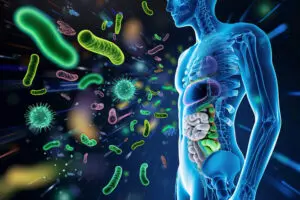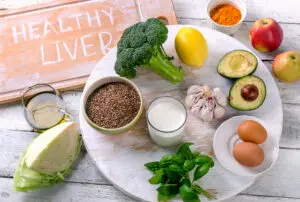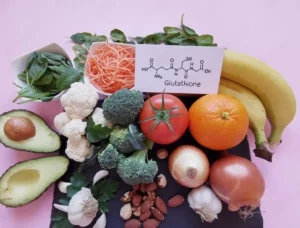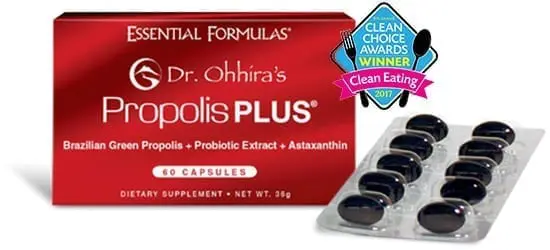According to the U.S. National Institutes of Health (NIH), digestive issues, “…are among the leading causes of doctor visits, hospitalizations, and disability in the United States each year.” They substantially burden our medical system, requiring 66.4 million visits to physicians’ offices annually and costing $121.8 billion.
The NIH further says, “The microbes that inhabit the GI tract – also known as the intestinal microbiome – are important factors in maintaining the balance between digestive health and disease.” They impact long-term health, and when the microbiome is disrupted, overall health is affected. There is a wide array of bacteria that play a role in the microbiome – harmful and friendly strains. Collectively, these friendly organisms are called probiotics.
The National Institutes of Health define probiotics as “live organisms that, when administered in adequate amounts, confer a health benefit on the host.”
[1]
The Human Microbiome
The human microbiome is the collection of viruses, bacteria, and fungi that naturally occur in the human body. We have more of these minuscule microbes in our bodies than human cells, and scientists are finding that they have an outsized impact on human health. They live throughout our bodies in surprising places:
- Skin
- Urinary tract
- Gut
- Vagina
- Mouth
- Digestive tract
Every person’s microbiome differs depending on lifestyle, heredity, and other factors. Our microbiome is affected by many factors, including nutrition, tobacco and alcohol use, antibiotic treatment, and our modern lifestyle.
The National Institute of Environmental Health Sciences (NIEHS) is studying several environmental factors that appear to harm the microbiome to learn more about how environmental factors affect our health. Here are a few:
- Air pollution
- Antimicrobials
- Artificial sweeteners
- Chronic stress
- Diet
- Flame retardants
- Heavy metals
- Pathogens
- Pesticides
Maintaining a Healthy Microbiome
For many decades we lumped all bacteria together as detrimental to human health and fought it at all costs. What scientists are learning, however, is that there are friendly strains of bacteria that promote human health in a multitude of ways and, when absent, may allow pathogenic bacteria to grow and cause disease.
Much of the research on the human microbiome today focuses on improving health by introducing different strains of bacteria into the body. Scientists are aware of a connection, hence the increased scientific activity around probiotics, but research continues to learn more and determine which strains are most effective for particular conditions.
Understanding Probiotics
Probiotics are living organisms that have positive effects when they live in or are introduced into the body. They balance the harmful bacteria in the intestines, reducing their number, and have shown indications that they boost the immune system.
Probiotics have the greatest positive effect when they are live cultures, and multiple families and strains of bacteria have shown promise in improving health. The most commonly used strains are Lactobacillus and Bifidobacterium. A good yeast that is also a probiotic is Saccharomyces boulardii.
The most commonly used bacteria appear in probiotic supplements as strains or subsets of that bacteria. Here are a few variations of the Lactobacillus and Bifidobacterium probiotics:
- L. acidophilus
- L. casei
- L. plantarum
- B. lactis
- B. longum
- B. bifidum
When these helpful organisms reach our intestines, they live out their lives there, but in the course of their lives, scientists believe that they play critical roles in our health in several ways:
- Help digest our food
- Balance bad bacteria
- Produce vitamins
- Break down and absorb medications
Probiotics and Digestive Health
The largest amount of research on probiotics has centered on their role in digestion. As mentioned above, digestive concerns are rampant in the U.S., and while research is ongoing, there is a lengthy list of ways probiotics improve overall digestive health.
How much probiotics can help depends on how well they survive the acidic climate in the stomach and intestinal tract. If you take a probiotic, one crucial factor in any supplement you select is its ability to deliver live organisms to your intestines, where they benefit you the most.
Many factors, such as those mentioned above, negatively impact our microbiome when we live a modern lifestyle. In addition to those, there is also antibiotic use to consider. Doctors today often recommend a course of probiotics during or after a course of antibiotics.
Because while antibiotics fight pathogenic bacteria, they also kill off friendly bacteria. When the microbiome becomes unbalanced, the harmful bacteria from food, air, water, or other sources can grow and cause digestive disturbances, such as diarrhea. Reintroducing the helpful bacteria into the digestive system is often beneficial in these cases.
Probiotics and the Immune System
Globally, the cost of treating autoimmune disorders grew from $23 billion in 2011 to $140 billion in 2022. These conditions happen when your body can’t distinguish between healthy and unhealthy cells.
Cultures with little in the way of autoimmune issues have recently seen numbers increase. Scientists say the spread of fast foods has found its way into nearly every culture on the planet. Fast foods lack fiber, significantly affecting digestive health because the helpful organisms feed on fiber.
Immune cells and microbes in the intestines constantly communicate and react with each other. This conversation stimulates the intestinal immune cells and microflora to keep immune functions steady. Scientists call for more study in this area and are looking into how probiotics impact a wide range of health conditions.
Investigation Continues
There are many other conditions scientists believe can improve with a healthier microbiome. Here are a few of the top areas of research:
The Gut-Brain Axis and Serotonin
The gut-brain axis is a recently-discovered pathway between the central nervous system and the gastrointestinal tract. The gut is sometimes called the “second brain” because, like the brain, it creates neurotransmitters such as serotonin, dopamine, and gamma-aminobutyric acid. Estimations are that the digestive tract creates 90% of the serotonin in the human body.
Serotonin plays a key role in mood, digestion, sleep, learning, memory, happiness, and many other bodily processes. A healthy microbiome produces sufficient serotonin in the body, but when we continually live stressed-out lives, our microbiome can suffer. Improving the microbiome with probiotics can positively influence overall health.
Probiotics and Weight Management
Researchers fed rats an energy-dense diet that provided a strong motivation to overeat. They also fed some of the rats Lactiplantibacillus plantarum IMC 510, a probiotic. The rats that received the probiotic ate less and gained less weight than those that did not.
Probiotics for Skin Health
Studies have shown intestinal microbiota can influence skin health, demonstrating what scientists call the gut-skin axis. They believe that probiotics are potential management tools to improve skin conditions.
Choosing the Right Probiotic
There are many options on the market when you decide to try probiotics. Make sure you choose a quality product. Dr. Ohhira creates probiotic supplements using ancient Japanese wisdom and the latest scientific research.
They contain multiple probiotic strains for a holistic effect on the body. The probiotic is fermented for three years to help the different strains “get along” and help them have the most potent impact when ingested into the body. Additionally, the extended fermentation period allows these bacteria to make important postbiotic metabolites throughout this time.
How to Choose a Probiotic
Here are a few essential things to consider when choosing a probiotic supplement.
- Make sure it contains all-natural ingredients
- Is it hypoallergenic? If it contains dairy or gluten, it could cause allergy issues.
- Does it contain live cultures?
- Is it designed so the cultures survive the stomach acids and reach the intestines?
- Are multiple probiotic strains included for a full-spectrum effect on the body?
- Does the probiotic contain prebiotics to feed the probiotics as they enter your system?
Precautions and Side Effects
Probiotic supplements are generally considered safe, but if you are immune-compromised, have recently had surgery, or have been hospitalized, talk with your doctor before taking a probiotic supplement.
When first taking a probiotic, you might experience bloating, gas, mild stomach upset, or diarrhea as the microorganisms do their business.[2] These minor discomforts may occur while your intestinal tract rebalances to more positive probiotic levels. If the symptoms do not stop after about two weeks, stop taking the probiotic and talk with your doctor.
A Few Final Thoughts
The scientific community is very interested in probiotics and how they affect physical and mental health. Early indications are that these tiny microorganisms have a role in nearly every system in the human body.
When you try probiotics, consider Dr. Ohhira’s probiotic supplement, the choice of many clinical nutritionists. Dr. Ohhira’s includes prebiotic fibers from whole foods, diverse probiotic strains, and most importantly, beneficial postbiotics that develop during the multi-year fermentation process. Dr. Ohhira adds no artificial additives, chemicals, or preservatives. And the product is gluten and dairy-free, vegetarian, pure, and all-natural.[3]
If you have questions or need help ordering, contact us online.
Added Links






